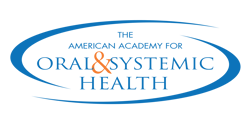Key Role of Oral Systemic Health in Alzheimer’s
Presented by: Dale Bredesen, MD
Original Publication Date: May 29, 2024
| Take the Course | This course is available for CE Credit as a "Members Only" benefit. Not a Member? CLICK HERE to learn more about AAOSH Membership. |
Enjoy A Free Course Preview:
(Please Note: These are sample courses; watching these videos here does not provide CE credit. Please visit members.aaosh.org to search for these courses and earn CE credit.)
Course Description:
Oral-systemic health is emerging as a dominant player in Alzheimer’s disease. Forty-five million Americans are projected to die of Alzheimer’s (as compared to just over one million from the COVID pandemic) if effective prevention and treatment are not implemented. Although past theories of Alzheimer’s have focused on simple mechanisms such as protein misfolding, free radicals, and amyloid plaques, our laboratory research over the past 30 years has demonstrated that Alzheimer’s disease is a network insufficiency, governed by three major groups of contributors: energetics, inflammation, and toxicity. Oral health contributes to all of these, with factors such as the oral microbiome, periodontitis, gingivitis, root canals, abscesses, airway patency, dental amalgams, viral infections, and other factors. Concurrent to these developments, the first patients to reverse their cognitive decline have been reported, and recent proof-of-concept trials have confirmed that identifying and addressing these root cause contributors is often effective in the treatment of cognitive decline. Moreover, new blood tests allow early detection and quantitative follow-up. Therefore, achieving best outcomes for patients with cognitive decline or risk for decline will require collaboration between oral-systemic experts and neurological experts utilizing these new approaches.
Learning Objectives:
- Understanding the Role of Oral-Systemic Health in Alzheimer's Disease:
- Participants will gain a comprehensive understanding of the significant role oral-systemic health plays in the development and progression of Alzheimer's disease, including its connection to energetics, inflammation, and toxicity, as well as the various oral health factors implicated in Alzheimer's pathology.
- Identifying Key Contributors to Cognitive Decline:
- Participants will learn to identify and evaluate key contributors to cognitive decline, such as the oral microbiome, periodontitis, gingivitis, root canals, dental amalgams, viral infections, and other oral health factors, in order to develop targeted treatment and prevention strategies.
- Implementing Collaborative Approaches for Improved Patient Outcomes:
- Participants will discover the importance of interdisciplinary collaboration between oral-systemic experts and neurological experts in addressing cognitive decline, utilizing new diagnostic tools and treatment approaches to achieve optimal patient outcomes.
Speaker Bio:
Dr. Bredesen graduated from Caltech and received his MD from Duke. He served as Resident and Chief Resident in Neurology at UCSF, then was a postdoctoral fellow with Nobel laureate Prof. Stanley Prusiner. He was the Founding President of the Buck Institute for Research on Aging.
The Bredesen Laboratory studied basic mechanisms underlying the neurodegenerative process and the translation into effective therapeutics for Alzheimer’s disease, leading to the publication of over 220 research papers. He established the Alzheimer’s Drug Development Network with Dr. Varghese John, leading to the identification of new classes of therapeutics for Alzheimer’s disease. His work led to the discovery of subtypes of Alzheimer’s disease, followed by the first description of the reversal of symptoms in patients with MCI and Alzheimer’s disease, with a precision medicine protocol and a recent successful proof-of-concept trial. Dr. Bredesen is the author of two New York Times best sellers. He is currently a professor at UCLA.
